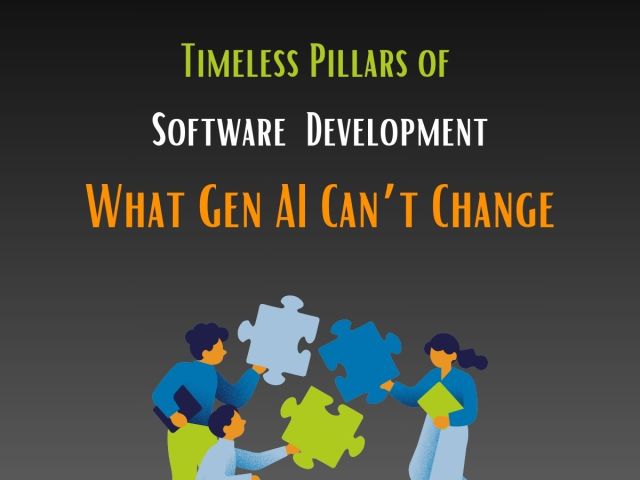Google Cloud Databases are competent of handling modern data bounded with flexibility and performance. GCP is a hosted platform solution for disseminated data across geography. Powerful interconnected software defined network supports serverless computing and scalable security. Google Cloud Platform allows you to use it as Infrastructure as a Service (IaaS), Platform as a service (PaaS), and Software as a service (SaaS)
Choosing the right Google Cloud Platform Databases opens possibilities least downtime for customers, secure and cost effective cloud computing services.

Cloud Deployments:
- Single cloud deployment is simply creating new cloud databases on Google. Lift and shift existing workloads from on-premise to cloud and later on discontinue the on-premise database.
- Hybrid Deployment is necessary for the application on the cloud that needs access to an on-premise database or vice versa. E.g., Compiling customer survey and analysis requires access to the customer database hosted on the cloud. To define the role of GCP decide whether the master database will be store on–premises or in the cloud. If data is stored on-premises, you can synchronize data to the cloud for remote use or backup. Managed services are available for resources in the cloud except for the hybrid application whose on-premises resources are not managed. Optionally you can use third-part managed services for automated backups and scalability. For portability, reliable data transfer and consistency across platforms use homogeneous databases on-premises and in the cloud.
- Multicloud Deployment enables the combining of databases deployed on Google Cloud and other cloud providers. It distributes your database effectively but to take due advantage of the multicloud deployments, database integration and migration of the database to GCP is necessary.
Google Cloud Platform Databases
Cloud SQL:
- Manage a database using Infrastructure as Code (IaC)
- Fully managed relational databases lowers maintenance costs
- Ensures increased serviceability with automated database provisioning, fair storage capacity, and database management
- Default size is 10TB, you can add 400GB RAM and 30 TB storage for scalability
- Easy Integration with Google Cloud services and other applications
- One click replication of your instance to other region
- Automatic backups, achieve application compatibility and external migration of on-premises MYSQL database
- Ability to handle complex queries and multiple transactions simultaneously
Cloud Spanner:
- High reliability with zero downtime
- Gain from consistent performance across regions and continents
- No restriction of minimum and maximum size
- Efficient handling of replicas and automatic sharding of data on request load
- Easy deployment irrespective of database size
- Storage capacity of Petabytes ensures load handling
- Change schema without affecting the traffic
- Tested for 99.99% availability of database
- Backup and restoration available on demand
- Capable to store billions of data on daily basis
BigQuery
- Storage 10TB free per month
- 1TB of query data processing free every month
- A serverless service enables processing of data automatically for multiple machines working simultaneously
- Built-in data transfer service for data migration from on-premises to cloud
- Can process data stored in other GCP products
- Store data in a columnar database for faster read and response rate
- Automatic encryption of data when at rest on in transit
Cloud Bigtable
- No SQL database
- High availability of 99.99% and zero downtime even during reconfiguration
- Consistent sub-10ms latency can handle millions of requests every second
- Seamless scaling with dynamic support for hundreds of nodes
- Increase the Bigtable cluster size without any downtime
- Flexible automated replication increases availability and isolation of workloads for live apps
- Data repair and synchronizing the updates in data requires no manual intervention
- Easy connect with other Google Cloud services
- Designed to store the ML applications
Cloud Firestore
- No SQL Google Cloud Platform database can scale up effortlessly
- Can store up to 1GiB which 20M chat messages
- Easy integration with Firebase and Google Cloud services
- Lets you run atomicity, consistency, isolation, and durability (ACID) transactions against the document data
- Built-in sync accelerates the development of real time applications
- Store, and synchronize query data for mobile, web and IoT applications
- Customizable security and data validations for protection of data
Firebase Realtime Database
- No SQL Google Cloud database that enables storage and data sync in real-time.
- Easy collaboration across devices for speedy and accurate access of data from web or mobile apps
- Realtime Database software development kits (SDKs) for faster app development
- Increase app engagement cloud messaging and other cloud functions
Cloud Memorystore
- Automates complex tasks for building applications at a high pace
- Fully compatible with Redis and Memcached
- Supports large clusters of 5TB
- Enables you to build application caches that provide sub-millisecond latency
- Low latency assists high speed data access and data transfer
- Redis instances are replicated in two zones for 99.99% availability
- Automated provisioning and replication
- Cloud monitoring and integration with OpenCensus for better insights
- Easy migration as no change in code required to switch applications
How to choose Google Cloud Databases?
Google Cloud Platform Databases selection criteria is easy to define if you have clarity on type of applications, storage space needed, number of databases, size of database likely to expand multiple times.
- Cloud SQL recommended for E-commerce, Content Management System (CMS) and businesses with huge data. Your RDBMS needs a storage capacity of 10TB.
- Cloud Spanner is built for database scalability and transactional consistency. Go for it if your data is likely to cross 10TB in due course. It is useful for Supply Chain Management and Financial Trading and Analysis. It is highly recommended for infrastructure monitoring and structured data.
- BigQuery has a storage capacity of 10 TB and this GCP is suitable for data warehouse modernization and machine learning analytics and predictions.
- Cloud BigTable is a good option for large amounts of data and analytics workloads and DevOps monitoring.
- Cloud Firestore is the recommended option of GCP if your focus is on app development and require offline support for marketing, social media, IoT and mobile applications.
- Firebase Realtime Database is useful for applications on GCP that need high security and authentication. It is best for third party payment processing, and Ads optimization and personalization.
- Cloud Memorystore is a considerable option to lift and shift migration of apps on GCP, for machine learning applications, and Real-time analytics. Best for high value data and for database consistency but it cannot handle voluminous data.
You need to be decisive for your organization to benefit from services you opt, and its implementation should optimize deliverables. Harmony between the varied cloud services and Google Cloud Platform (GCP) is the key to trepidation free creation of applications and their availability in long run.
Conclusion
To encapsulate, Google Cloud Platform (GCP) stands as a robust solution for modern data management, offering a blend of flexibility and high performance. Its global reach and interconnected software-defined network underpin serverless computing and robust security measures. With options ranging from Infrastructure as a Service (IaaS) to Platform as a Service (PaaS) and Software as a Service (SaaS), GCP caters to a spectrum of needs.
Selecting the right GCP Database is pivotal for seamless, secure, and cost-effective cloud computing. The choice between single cloud deployment, hybrid approaches, or multicloud setups hinges on the unique requirements of each application.
Each GCP Database, from Cloud SQL to Firebase Realtime Database, addresses distinct needs. Whether it’s managing relational databases, handling high-volume transactions, or ensuring real-time data sync, GCP offers a suite of powerful tools.
Ultimately, the key to success lies in understanding your organization’s specific demands, making an informed choice, and skillfully implementing the selected services. This synergy between cloud services and GCP paves the way for unhindered application development and availability in the long term. Embrace GCP, and unlock the potential of your data-driven future.




